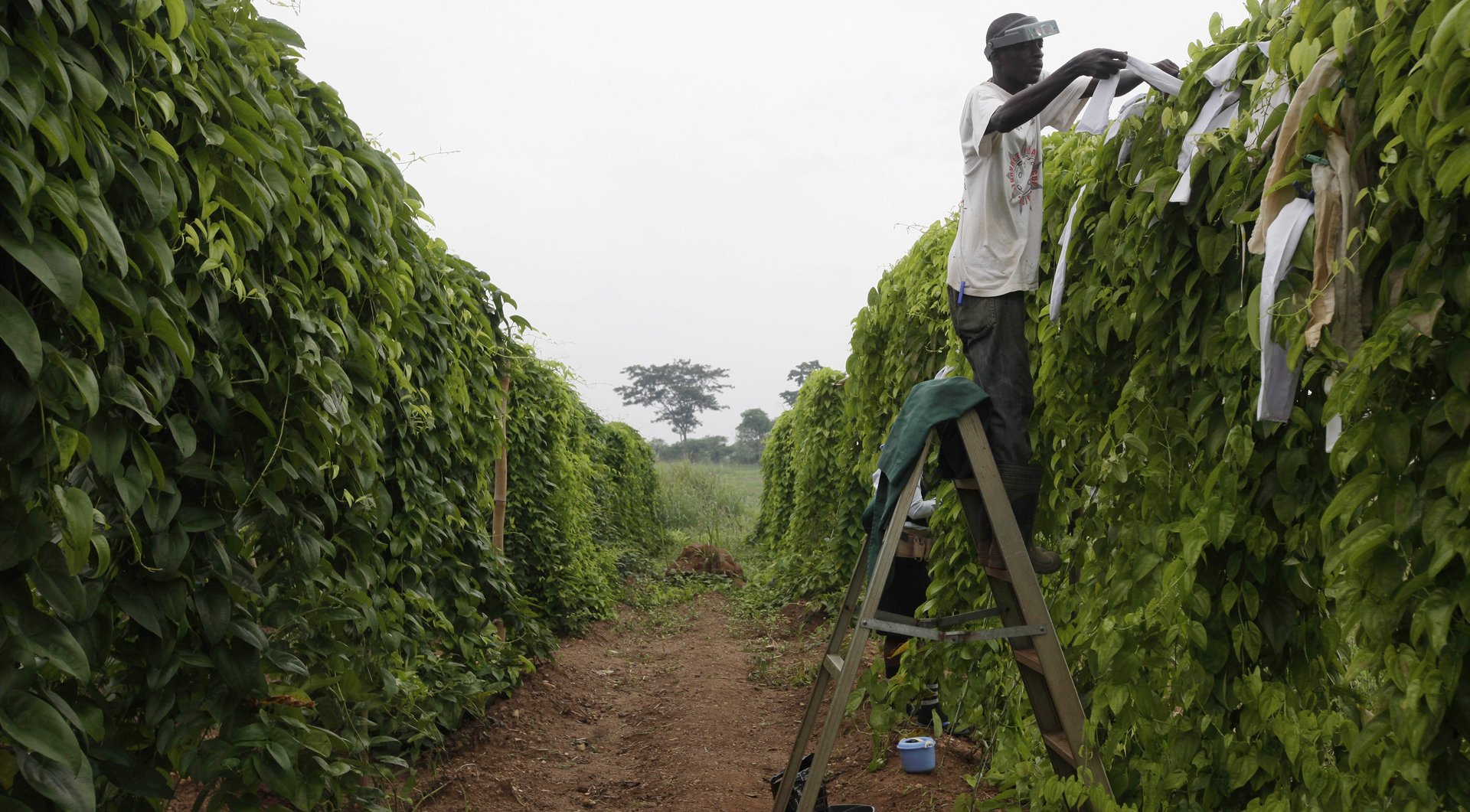Meet the eight finalists for a $100 million grant to solve the world’s biggest social problems
The MacArthur Foundation, known for awarding the prestigious “genius” grants to people who have distinguished themselves in the arts and sciences, is in the process of assigning its largest grant ever. It will give $100 million to one of the contenders for 100&Change, a contest to find a compelling and achievable proposal to tackle a big social issue.


The MacArthur Foundation, known for awarding the prestigious “genius” grants to people who have distinguished themselves in the arts and sciences, is in the process of assigning its largest grant ever. It will give $100 million to one of the contenders for 100&Change, a contest to find a compelling and achievable proposal to tackle a big social issue.
Yesterday the foundation announced its shortlist of eight semi-finalists, from over 1,000 initial applicants. Of them, five will be chosen to present their projects in December, when the board will pick the winner. The breadth of the projects, and their creativity, is impressive: They tackle a variety of health and education issues in innovative ways by providing a tangible solution to a specific problem. Here they are.
1. Fewer orphanages, more family care
An astonishing 80% to 90% of children who live in orphanages in developing countries have living family members, according to Catholic Relief Services (CRS). The charity wants to change the very notion of an orphanage. Instead of using donations to support a structure that, in many cases, keeps children away from their families, CRS proposes to spend the money supporting the families, so they can care for the children at home. It’s both a more efficient allocation of resources and a way to reduce dramatically the number of kids who grow up in institutions.
2. For better nutrition, grow better food
Through plant breeding, HarvestPlus founder Howarth Bouis developed enriched crops that provide extra nutrients in areas where malnutrition is rampant. Twenty million people have already adopted these crops, which include cassava, corn, and wheat, as part of HarvestPlus programs. The proposal is to expand production, so that people can grow food with the minerals, vitamins, and iron required for healthy development. A nutritionally poor diet, while filling, can cause conditions ranging from blindness to stunting to learning difficulties. Starting with Zambia, Nigeria and Uganda, the project aims to reach a billion people by 2030.
3. Cataract surgery for $25
There are nearly 40 million blind people in the world. For 80% of them, according to the World Health Organization (WHO), blindness could have been prevented or could be treated. In developing countries, where most of the blind live, cataracts are a major cause of sight loss. The Himalayan Cataract Project plans to deliver corrective surgery to 500,000 people in Nepal, Ethiopia and Ghana. Surgery can cost as little as $25, and the grant would be enough to finance not just the procedure, but also to train local health providers in performing it, equipping them to carry on treating cataracts after the first wave of the project is over.
4. The doctor is in (remotely)
According to the latest data collected by the Kaiser Family Foundation’s commission on Medicaid, there are nearly 29 million Americans uninsured, and the insurance of millions more is uncertain as the Trump administration moves to dismantle Obamacare. The Human Diagnosis Project wants to bring specialist consultations to patients, for free, via an online platform. Through the most prestigious US universities, the project would recruit 100,000 specialists to treat online those who can’t afford—or find—in-person visits. The doctors would be paid not directly in cash but with credits towards continuing their education and improving their skills.
5. An online library with all the books
Though the internet may seem essentially infinite, many millions of books haven’t yet been digitized. The Internet Archive project proposes to use the MacArthur grant money to digitize some of the most important library collections in the world, and then lend them through a library-like model. The organization estimates that the scale of the project would cut digitization costs by half.
6. NEST-ing for Africa
Newborn Essential Solutions and Technologies, or NEST, is a series of simple, often low-cost measures to ensure the survival and health of newborns—from keeping them warm to helping their breathing to treating jaundice. These measures can drastically reduce infant mortality, especially the 40% of it that happens within one month of birth, according to the WHO. Rice University’s 360° Institute for Global Health proposes using the grant to provide a NEST kit to children born in several African countries, as well as training local people in pre- and post-natal care.
7. Sesame Street for refugee kids
Children all over the world learn with Sesame Street—why should it be different for the 12 million who live as refugees? The International Rescue Committee, in partnership with Sesame Street Workshops, hopes to use the grant to develop media for refugee children, addressing both their educational needs and the psychological problems caused by displacement and trauma.
8. A river blindness-free Nigeria
According to the WHO, river blindness affects about 30 million people worldwide. Eradicating the disease from Nigeria, though, is within reach. The parasite that spreads it infects up to 50,000 people in the country each year, but the Carter Center—which has successfully eliminated river blindness from Uganda, Sudan, and four Latin American countries—estimates that it can be stopped by training local people to administer a drug (donated by Merck) once or twice a year, so that it can become ubiquitous even in remote areas without health-care facilities. This training would also have the benefit of creating a rudimentary health system in those areas.